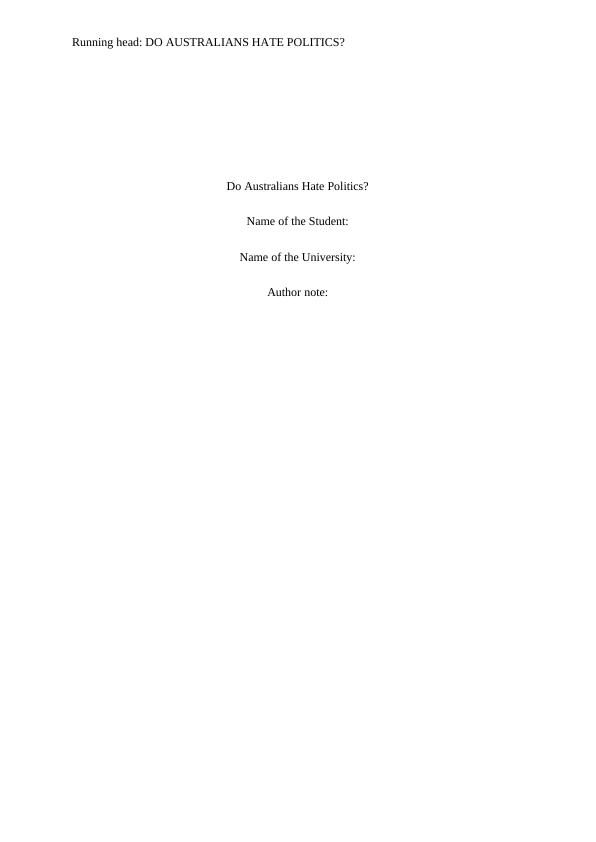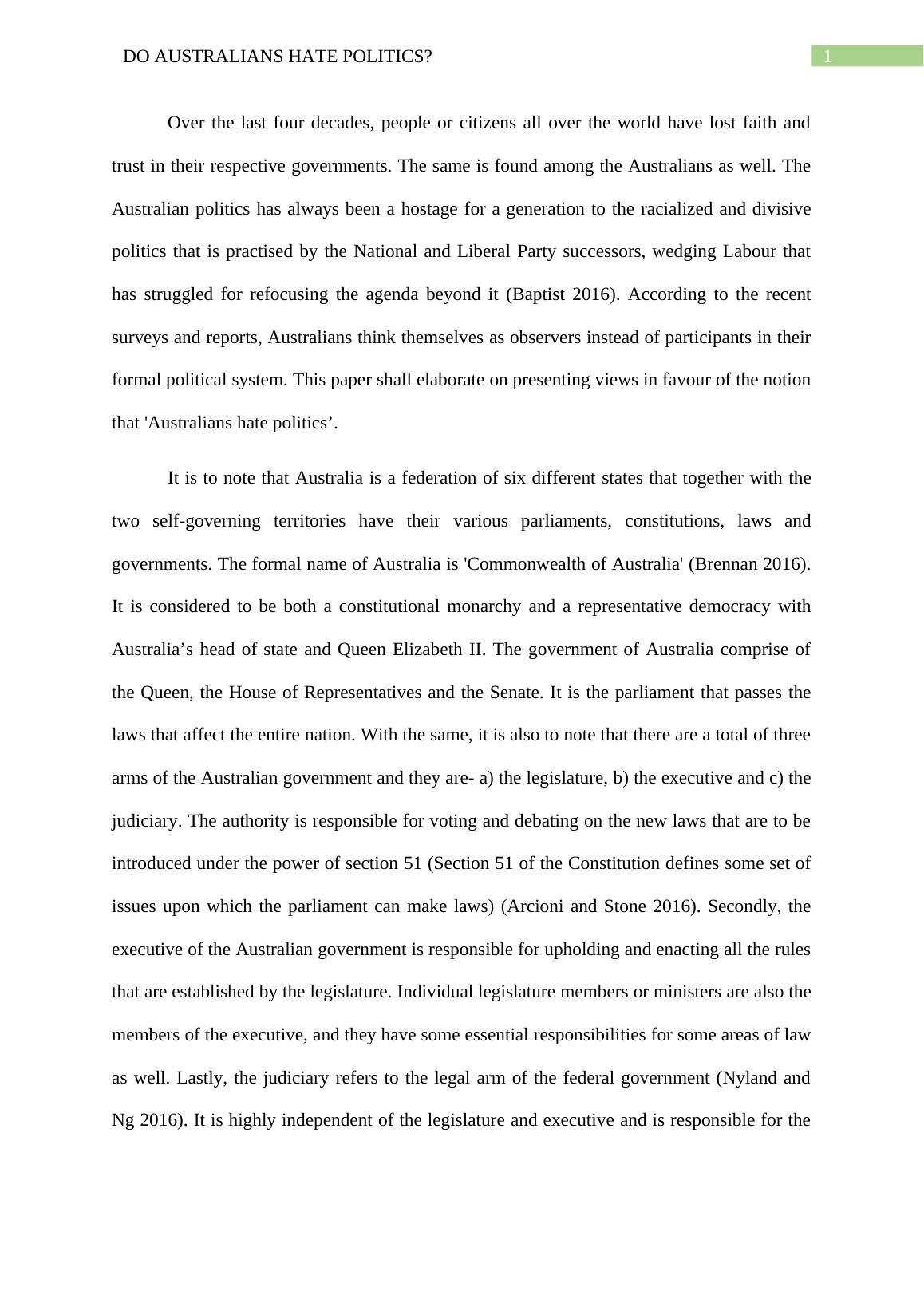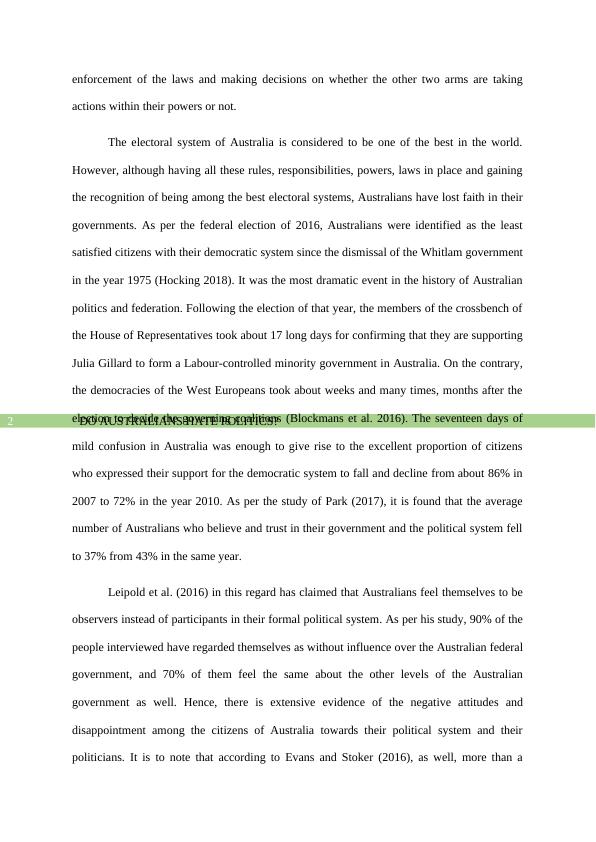Do Australians Hate Politics?
10 Pages2971 Words128 Views
Added on 2022-11-12
About This Document
This paper elaborates on presenting views in favour of the notion that 'Australians hate politics'. It highlights the negative attitudes and disappointment among the citizens of Australia towards their political system and their politicians.
Do Australians Hate Politics?
Added on 2022-11-12
ShareRelated Documents
End of preview
Want to access all the pages? Upload your documents or become a member.
Australian Society, System and Policies
|6
|1509
|283
Australian Federal Government Model for Institutional Reform in Shangri-La
|12
|2680
|49
Canadian System of Governance
|4
|750
|452
Report On Political System Of Australia
|17
|3444
|230
Understanding the Doctrine of Separation of Powers in Australian Constitution
|13
|3064
|490
Federal and State Constitutional Law Assignment
|12
|3035
|80



